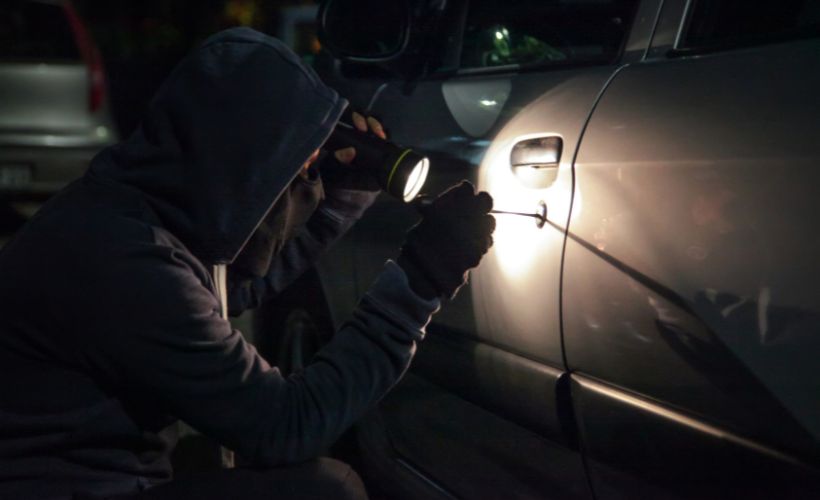If you’re a landowner in the UK, trespassing is something you may have to deal with in one way or another. Trespassing is defined by the act of entering someone’s privately owned property without permission. In the UK, it is usually more of a civil wrongdoing than a criminal offence.
Regardless of the law, trespassing is a problem that needs to be dealt with. The first step in solving this issue is understanding the cause, so let’s take a look at 6 common reasons for trespassing.
1. Homelessness
The people trespassing on your property may be homeless squatters looking for shelter. According to Greater Change, London has the highest number of homeless people in England, with a rate of around 60 per 10,000 people. Westminster specifically is the borough with the highest number of homeless people in the city.
Homeless trespassers can often be stopped by blocking access to your home with physical restrictions. This can be in the form of fences, gates, or other barriers.
However, some of the homeless trespassing on your property may have mental health problems that make it hard for them to stop crossing over to your property, physical barriers or no. You may need to get in contact with your local authorities, so they can provide the individual with proper resources and keep them away from your home.
2. Vague Property Boundaries
People may be accidentally wandering into your property due to unclear boundaries. This happens fairly often in rural areas, where large plots of land may not have obvious property lines.
It’s easy for hikers, dog walkers, or just everyday people to walk onto your land, especially if they are unfamiliar with the area. These people may not understand that they are doing anything wrong. It’s important that you mark the perimeter of your land with fences and signs stating where the property starts and where it ends.
If there are many wild animals near the property, you may want to check on the signs and barriers every so often or set up cameras. The animals can knock them down and undo the work you put into making sure humans don’t trespass.
3. Vandalism or Amusement
Trespassers may enter some else’s property to deface it with graffiti or cause another form of property damage. If you do catch a trespasser vandalizing your property, then any legal case that results from the event will be criminal. Vandalism covers an array of criminal offences in the UK, including reckless behaviour and property damage.
Many property owners deal with rowdy young adults who trespass for their own amusement. This is common in urban neighbourhoods, particularly those near pubs and other places young adults frequently visit. If you notice trespassers are more common around the weekend, reckless young adults may just be your culprits.
Again, to deter this behaviour to the best of your ability, setting up physical barriers is your smartest move. Signs may not stop daring trespassers, especially if they are heavily inebriated, but physical barriers will be a greater challenge for an uncoordinated bunch.
4. Photography or Videography
Some plots of land are extremely attractive with photographers and videographers. They might hold photoshoots and film short videos on private property without asking permission. Many times, signs and barriers don’t work well enough to deter these people. They believe that a few moments of trespassing are worth the trouble they might get into if it means they can complete their artistic vision.
These kinds of trespassers are especially troublesome, because they may bring with them models, actors, or assistants to help them take pictures or film, so your property gets invaded by multiple people.
5. Hunting and Fishing
While some hunters and fishermen may stumble into the property accidentally because of vague property lines, others may intentionally trespass to hunt birds or wildlife and fish. Like photographers and videographers, these kinds of trespassers can’t always be stopped by signs and fences. They want to complete their activity on land that isn’t theirs, so they are less prone to listening to warnings.
6. Theft
The criminal activity most often associated with trespassing is theft. According to Statista, there were over 260,000 house robberies across England and Wales in 2021 and 2022.
You must take certain precautions if you want to avoid house robberies as best as you can. Of course, nobody asks to get robbed, but thieves don’t operate on a whim either. They often look out for houses that look empty and may even go as far as observing specific houses to determine the schedule of its inhabitants.
Making the house look “lived in” even while on vacation can help deter thieves. This is something that family members, neighbours, or hired house sitters can help you with. Place cameras and signs around the house to scare the thieves away. If you have any cameras, warn would-be trespassers of them, since people are less likely to trespass if they believe they may get caught. You could also modify your property, such as with higher gates, outdoor light sensors, or prickly bushes.
Get Professional Help with Trespassers
If you’ve done all you can to stop trespassers and they won’t stay off your property, it’s time to contact professional enforcement services. Enforcement services can provide the resources you need to remove trespassers and squatters from your property effectively.
There are times when you can’t get the trespasser to leave and you can’t call upon law enforcement either. This is where enforcement officers come in. Enforcement officers work under the boundaries of the law to solve your trespasser situation. They can help you file the necessary paperwork that requests the removal of the trespasser, as well as provide security to deter further trespassing. If need be, they understand how to use reasonable force to remove trespassers.
Able Investigations can be the support you need when you’re dealing with trespassers. We have been operating since 1993 and service property owners all throughout the United Kingdom. Whether you need legal advice, assistance, or back up in the form of trained enforcers, don’t hesitate to call us.




Comments are closed.